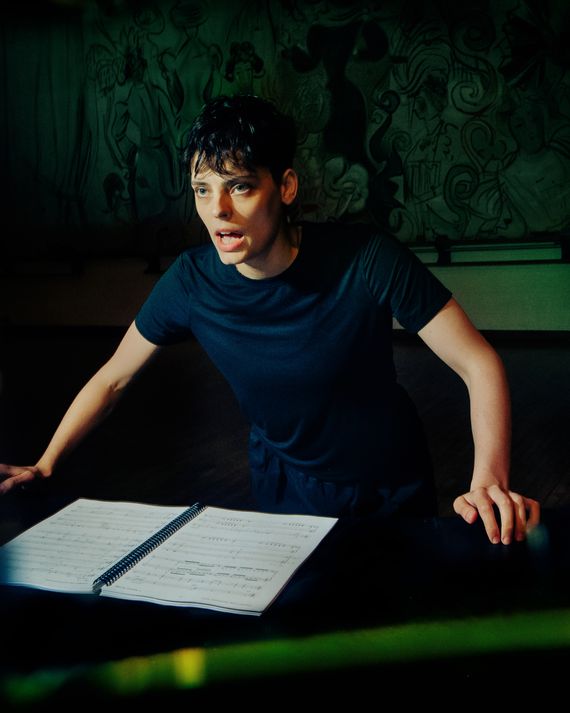
The 30-year-old mezzo-soprano made her Metropolitan Opera debut as the Second Lady in Mozart’s The Magic Flute almost six years ago. Now officially a prima donna — literally, “first lady” — she opens the Met season on September 23 with Jeanine Tesori’s Grounded, and doesn’t stop singing for virtually the entire 100-minute span.
I sing the role of Jess, a fighter pilot who gets grounded because she’s pregnant and takes a few years off from work. When she comes back, technology has evolved, and her new job is as a drone pilot. The challenge is how to physically manifest all the big emotions she’s having while sitting in a chair in the drone trailer 12 hours a day, then driving an hour to pick up her kid, and then going back to war the next day. She’s big right from the start and even as her world gets smaller, her inner life gets bigger and bigger. The stamina you need to sing her is part of the character. She’s sitting completely still but feeling huge emotions. Mentally, she becomes quite fractured.
The opera is based on a one-woman play by George Brant. For the opera, it’s been deconstructed, and the other characters come to life. It’s also changed since it first opened at the Washington National Opera last fall. In that version, Jess did a lot of narration. Now, she lives more in the moment, and Jeanine has added new music that contributes to her character development.
The emotions get as big as they possibly can: We’re dealing with death and sacrifice and all kinds of huge operatic and real-life topics. But the role is beautifully paced and incredibly human. We see many sides of her — warrior, woman, mother — and so Jeanine’s writing makes demands on all the aspects of my voice. The dynamic and vocal range is as wide as it could be, too, from a cappella moments to extremes of volume, where the orchestra is playing full out along with the chorus and all the other soloists, and you have to be heard over all that in a theater with 4,000 seats.
When I first got the score, I said, “This is not happening. It’s completely impossible!” Every page I turned, Jess was singing. I kept flipping and flipping and looking for a couple of pages where she didn’t have anything to say. And it is difficult, but I can do it with the strength of the character behind me. When I go out on stage I have to have a bit of Jess’s personality — anyone who sings opera does. We all have to overcome fear and trick ourselves into being brave. You can’t hesitate. And that takes a lot of work, a lot of preparation. We do whatever we need to do to get onstage and not fall apart.
It helps that Jeanine, who is a genius, took the time to get to know me and my voice before writing the role. She came to a session with me and my singing teacher and together we demonstrated what I had to offer. I was blown away by what she came back with. I love variety. I thrive on singing many kinds of music, from the medieval abbess Hildegard of Bingen to something that’s fresh off the press. And Jeanine has a wide scope of musical influences, too, so she’s given me long, high ascending lines that remind me of Strauss, or Rossini plunges from the top of my range to the bottom. But her compositional style and her voice is unique — complex, but full of intensity and nakedness and beauty.
At the end of the run, I can’t just put a role like this on a shelf and close the door. It stays with you.
Correction: An earlier version of this post misspelled Jeanine Tesori’s name.


